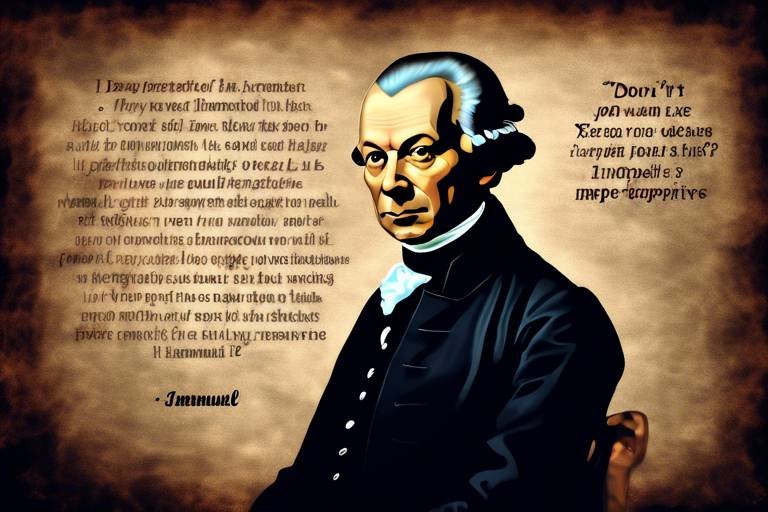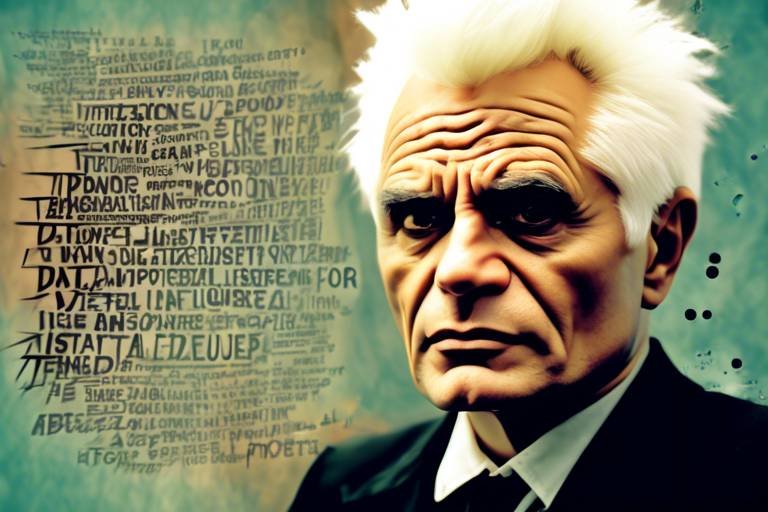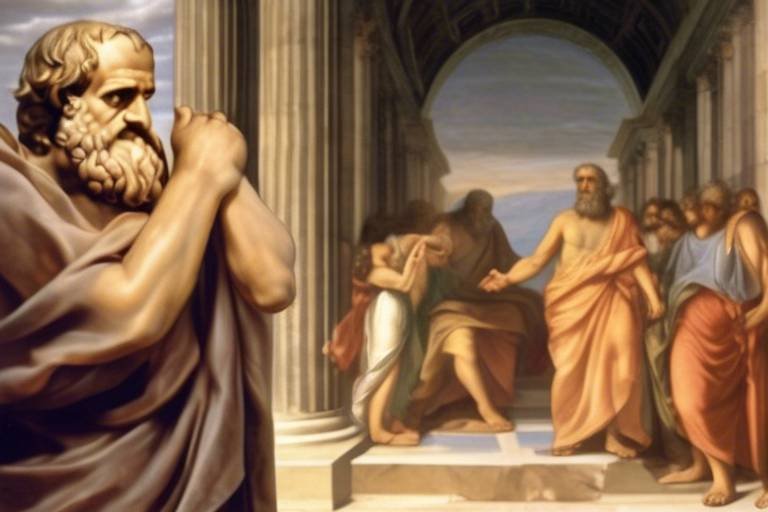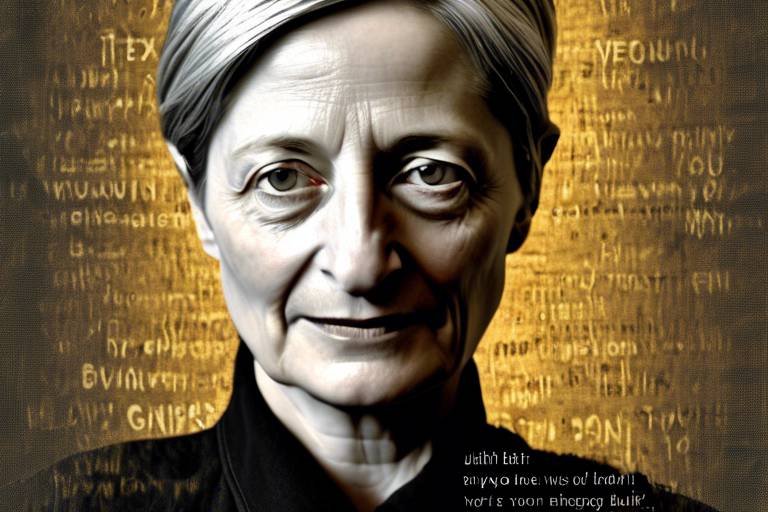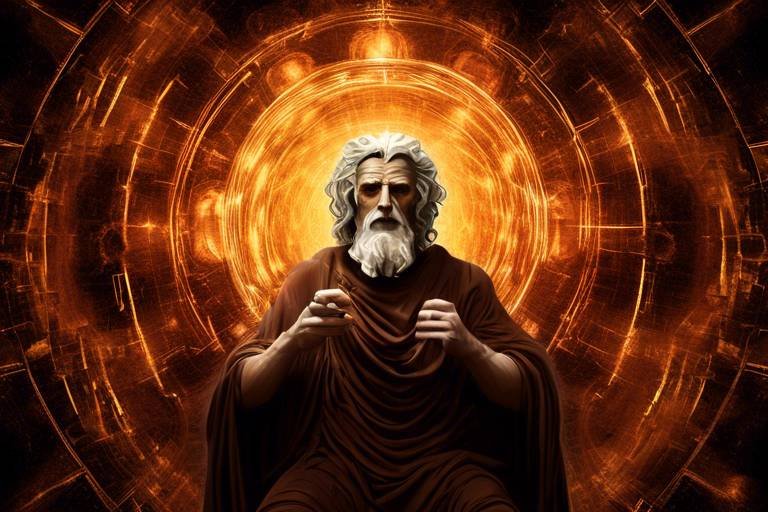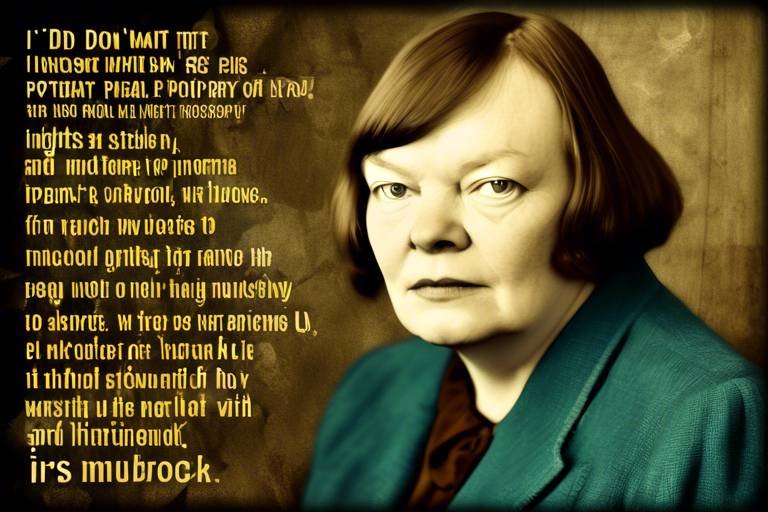Descartes's Thoughts on Mind-Body Dualism
René Descartes, a towering figure in Western philosophy, is best known for his profound insights into the nature of existence and consciousness. His exploration of mind-body dualism has sparked debates that continue to resonate in both philosophical and scientific circles today. At its core, dualism suggests that the mind and body are not merely different aspects of the same entity, but rather, they exist as fundamentally distinct substances. This idea challenges our intuitive understanding of the self and raises critical questions about personal identity, consciousness, and the very nature of reality.
Descartes famously articulated his dualistic philosophy with the phrase Cogito, ergo sum—"I think, therefore I am." This declaration underscores the importance of self-awareness and thought as the defining characteristics of the mind, setting it apart from the physical world. In this article, we will delve deeper into Descartes's arguments for dualism, the implications of his ideas, and the critiques that have emerged over the centuries. By examining the interplay between the mind and body, we can better understand not only Descartes's influence on philosophy but also its relevance to contemporary discussions about consciousness and the nature of existence.
As we navigate through Descartes's thoughts, we will explore several crucial aspects of his philosophy:
- The Concept of Dualism: Understanding the fundamental distinctions between mind and body.
- Cartesian Substance Dualism: The assertion that the mind is a non-physical substance.
- Implications for Identity: How the separation of mind and body influences our understanding of self.
- Challenges to Substance Dualism: Key objections and counterarguments raised by critics.
- Influence on Modern Philosophy: The lasting impact of Descartes's dualism on contemporary thought.
By unpacking these themes, we can appreciate the depth of Descartes's inquiry into the mind-body relationship and its implications for our understanding of consciousness. His work not only laid the groundwork for subsequent philosophical exploration but also paved the way for modern scientific investigations into the nature of the mind. Join us as we embark on this intellectual journey, examining how Descartes's revolutionary ideas continue to shape our understanding of what it means to be human.
Here are some common questions regarding Descartes's thoughts on mind-body dualism:
- What is mind-body dualism? Mind-body dualism is the philosophical position that the mind and body are fundamentally different in nature, with the mind being non-physical and the body being physical.
- What did Descartes mean by "I think, therefore I am"? This statement emphasizes that the act of thinking is proof of one's existence; if one can doubt or think, then one must exist in some form.
- How has Descartes influenced modern philosophy? Descartes's ideas have shaped discussions on consciousness, identity, and the mind-body problem, influencing both philosophical thought and scientific inquiry.
- What are some criticisms of Cartesian dualism? Critics argue that dualism fails to explain how the mind and body interact and that it may not align with findings in neuroscience.

The Concept of Dualism
When we dive into the philosophical waters of dualism, we're stepping into a realm where the mind and body are seen as two distinct entities. Imagine a complex dance between two partners, each with its own rhythm and purpose. This is the essence of dualism, particularly as articulated by the renowned philosopher René Descartes. He argued that the mind, which encompasses thoughts, emotions, and consciousness, is fundamentally different from the body, which is made up of physical matter. It’s like comparing a vibrant painting to the canvas it’s painted on; both are essential, yet they represent entirely different aspects of existence.
Descartes's dualism challenges us to reconsider our understanding of reality. In a world increasingly dominated by scientific explanations, the notion that our mental experiences are separate from our physical selves invites a sense of wonder. It raises questions about how these two realms interact. For example, how can something non-physical, like a thought or feeling, influence a physical body? This interplay is often described as the mind-body problem, a conundrum that has puzzled thinkers for centuries.
In Descartes's framework, dualism is not just a theoretical concept; it has profound implications for how we view ourselves. If the mind is a separate entity, then what does that mean for our sense of identity? Are we merely a collection of physical processes, or is there a deeper, non-material essence that defines who we are? This leads us to consider the implications of dualism on personal identity, consciousness, and even morality. How we answer these questions can shape our understanding of life itself.
Moreover, dualism has sparked a myriad of debates in philosophical discourse. Some argue that it provides a clear distinction between mental and physical processes, thereby enriching our understanding of human experience. Others, however, contend that such a separation is overly simplistic and fails to account for the intricate connections between mind and body. This ongoing dialogue is what keeps the concept of dualism alive and relevant in contemporary philosophy.
In summary, dualism invites us to explore the profound relationship between mind and body. It challenges us to think critically about our existence and the nature of reality. As we continue to unravel the complexities of consciousness, Descartes's dualism serves as a pivotal reference point, reminding us that understanding our minds may be just as crucial as understanding our bodies.

Cartesian Substance Dualism
René Descartes, a towering figure in the realm of philosophy, introduced the concept of substance dualism, which fundamentally asserts that the mind and body are two distinct entities. This idea is not just a casual observation; it is a profound assertion that has sparked debates and discussions for centuries. To grasp the essence of Cartesian dualism, one must understand that Descartes viewed the mind as a non-physical substance that exists independently of the physical body. Imagine, if you will, the mind as a ghostly figure, ethereal and untouchable, floating above the tangible, material world of the body. This separation creates a fascinating dichotomy that raises numerous questions about our existence and consciousness.
At its core, Cartesian dualism posits that the mind is the seat of thoughts, emotions, and consciousness, while the body is merely a vessel, a physical entity that interacts with the world around us. Descartes famously stated, "Cogito, ergo sum" (I think, therefore I am), which encapsulates the essence of his philosophy. This declaration emphasizes that the act of thinking is proof of one's existence. It suggests that our identity is rooted in our mental processes rather than our physical form. In this way, Descartes laid the groundwork for a new way of considering human identity, one that transcends the mere physicality of our bodies.
To illustrate the implications of substance dualism, consider the following distinctions:
| Aspect | Mind | Body |
|---|---|---|
| Nature | Non-physical | Physical |
| Function | Thinking, feeling, consciousness | Movement, interaction with the environment |
| Identity | Defined by thoughts and awareness | Defined by physical characteristics |
This table summarizes the key differences between the mind and body according to Cartesian dualism. As we can see, the mind is characterized by its non-physical nature, while the body is rooted in the physical realm. This distinction is crucial in understanding the implications of Descartes's philosophy on personal identity and consciousness.
However, the implications of substance dualism extend beyond mere definitions. They invite us to ponder the nature of our existence and the relationship between our mental and physical selves. For instance, if the mind is a separate entity, how does it interact with the body? This question has led to various interpretations and debates among philosophers and scientists alike. Some argue that the interaction is akin to a puppeteer controlling a marionette, while others suggest that the relationship is more integrated, resembling a dance where both entities influence each other.
In conclusion, Cartesian substance dualism opens up a realm of philosophical inquiry that challenges our understanding of identity, consciousness, and the very essence of what it means to be human. By distinguishing between the mind and body, Descartes has left us with a legacy of questions that continue to resonate in both philosophical and scientific discussions today.

The Mind as a Thinking Substance
René Descartes's assertion, Cogito, ergo sum (I think, therefore I am), serves as a powerful cornerstone in understanding the mind as a thinking substance. This phrase encapsulates the essence of self-awareness and the undeniable existence of the mind. Descartes believed that the very act of thinking is proof of one's existence; if you are capable of questioning your reality, then you must exist in some form. This profound insight not only emphasizes the mind's role in defining our identity but also positions it as a separate entity from the physical body.
To illustrate this distinction, consider the mind as a pilot navigating a ship. The ship represents the body, which is subject to the laws of physics—its movements dictated by external forces and conditions. In contrast, the pilot (the mind) operates independently, making decisions based on thoughts and reasoning. This analogy highlights the dualistic nature Descartes proposed, where the mind and body are intertwined yet fundamentally different. The mind, as a thinking substance, is characterized by its ability to reason, reflect, and engage in complex thought processes that physical substances cannot replicate.
Moreover, Descartes argued that the mind possesses qualities that are inherently non-physical. These include:
- Consciousness: The awareness of one's thoughts and existence.
- Intentionality: The capacity of the mind to direct thoughts towards objects or ideas.
- Subjectivity: The unique personal perspective and experiences that shape an individual's understanding of reality.
These characteristics underscore the mind's role as a thinking substance that transcends the physical limitations of the body. Descartes's philosophy invites us to ponder the nature of consciousness itself. What does it mean to be aware? How do our thoughts influence our perception of reality? These questions remain central to contemporary discussions in philosophy and cognitive science.
Furthermore, the implications of viewing the mind as a distinct entity extend beyond philosophical inquiry. They challenge us to consider the nature of personal identity and what it means to be human. If our thoughts define our existence, how do we reconcile the experiences of individuals with differing perceptions? This line of questioning paves the way for deeper explorations into the essence of self and consciousness.
In conclusion, Descartes's notion of the mind as a thinking substance not only revolutionized philosophical thought but also laid the groundwork for future explorations into the mind-body relationship. His ideas continue to resonate today, prompting ongoing debates about the nature of consciousness and the essence of what it means to be aware.
- What is mind-body dualism? Mind-body dualism is the philosophical concept that the mind and body are two distinct entities that interact but are fundamentally different in nature.
- How does Descartes define the mind? Descartes defines the mind as a non-physical substance that is capable of thinking, reasoning, and self-awareness.
- Why is "Cogito, ergo sum" significant? This phrase signifies that the act of thinking is proof of one's existence, emphasizing the mind's role in defining identity.
- What challenges exist against substance dualism? Critics argue that the separation of mind and body is problematic, raising questions about how they interact and influence each other.

Cogito, ergo sum
This article explores René Descartes's philosophy of mind-body dualism, examining his arguments, implications, and critiques, as well as the influence of his ideas on contemporary philosophy and science.
Dualism posits that the mind and body are fundamentally distinct entities. This section will delve into Descartes's definition of dualism and its significance in philosophical discourse.
René Descartes introduced the idea of substance dualism, which asserts that the mind is a non-physical substance. This section will explore how this concept differentiates mental and physical realms.
Descartes famously declared, (I think, therefore I am). This profound statement encapsulates the essence of his philosophy, emphasizing the mind's role in establishing existence. Descartes believed that while one can doubt the existence of the physical world, the very act of doubting confirms the existence of the self as a thinking entity. This notion is not merely a philosophical musing; it serves as a foundational pillar for understanding self-awareness and consciousness.
Imagine standing in front of a mirror. You see your reflection, but what truly confirms your existence? Is it the image staring back at you, or the thoughts swirling in your mind? Descartes argues that it is the latter—our thoughts are the undeniable proof of our existence. This realization leads to a fascinating exploration of identity and consciousness, as it raises questions about what it means to be a sentient being. If the mind can exist independently of the body, then what does that imply for our understanding of life and identity?
The distinction between mind and body raises profound questions about personal identity. If the mind is a separate entity from the body, how do we define ourselves? Are we merely our physical forms, or do our thoughts and consciousness play a more significant role in shaping who we are? Descartes's views influence our understanding of self and consciousness, leading to a rich dialogue in both philosophy and psychology. In essence, the mind becomes a realm of exploration, where thoughts, memories, and emotions intertwine to create our unique identities.
Despite the compelling nature of Descartes's arguments, critics of Cartesian dualism have raised significant objections. Some philosophers argue that the separation of mind and body is not only problematic but also leads to a myriad of unanswered questions. For instance, how can a non-physical mind interact with a physical body? This interaction problem has been a focal point of philosophical debate, prompting many to seek alternative explanations for the mind-body relationship.
Furthermore, advancements in science and neuroscience have challenged the validity of dualism. As we delve deeper into understanding brain functions and the neural correlates of consciousness, the lines between mind and body become increasingly blurred. Critics contend that if mental states can be mapped to physical processes in the brain, then the idea of a separate, non-physical mind loses its footing.
In contrast to the mind, Descartes describes the body as an extended substance. This subsection explores the nature of physical existence and its relationship to the non-physical mind.
Descartes's dualism has significantly shaped modern philosophical thought. This section will analyze how his ideas have influenced contemporary discussions on consciousness and the mind-body problem.
The rise of neuroscience challenges traditional dualist perspectives. This subsection examines how scientific advancements impact our understanding of the mind-body relationship.
Despite critiques, some modern philosophers defend dualist views. This part discusses current interpretations of dualism and their relevance in ongoing philosophical debates.
- What is Cartesian dualism? Cartesian dualism is the philosophical view that the mind and body are fundamentally different substances that interact with each other.
- What does "Cogito, ergo sum" mean? It translates to "I think, therefore I am," emphasizing that the act of thinking is proof of one's existence.
- How does dualism impact our understanding of identity? Dualism suggests that our identity is not solely tied to our physical body but also encompasses our thoughts and consciousness.
- What are the main critiques of dualism? Critics argue that dualism creates problems regarding how the mind and body interact and that advancements in neuroscience challenge its validity.

(I think, therefore I am). This subsection discusses the implications of the mind as a thinking substance and its role in self-awareness.
René Descartes famously declared, "Cogito, ergo sum", which translates to "I think, therefore I am." This profound statement is not just a catchy phrase; it's the cornerstone of Descartes's philosophy and a pivotal moment in the exploration of self-awareness. By asserting that the very act of thinking is proof of one’s existence, Descartes invites us to consider the implications of the mind as a distinct, non-physical substance that operates independently from the body. Imagine for a moment that your thoughts are like a shadow, always present but never truly tangible. This metaphor highlights how our consciousness can exist separately from our physical form.
The notion of the mind as a thinking substance raises intriguing questions about self-awareness and identity. If our thoughts define our existence, then who are we beyond our physical bodies? Descartes's idea suggests that our essence lies in our capacity to think, reflect, and question. This leads to a fascinating exploration of personal identity, where the mind becomes the ultimate arbiter of our being. In essence, our thoughts shape our reality; they are the lens through which we perceive the world. This perspective compels us to examine our beliefs, values, and experiences as integral components of our identity.
Furthermore, Descartes's separation of mind and body has profound implications for understanding consciousness. It challenges us to think about how mental states—such as emotions, desires, and intentions—interact with our physical existence. For instance, when we feel joy, that emotion is a mental state that can influence our physical behavior, like smiling or laughing. Conversely, physical sensations can also affect our mental state, such as how pain can lead to feelings of sadness or frustration. This interplay underscores the complexity of human experience and the ongoing debate about the relationship between mind and body.
In the context of self-awareness, Descartes's philosophy invites us to engage in introspection. By examining our thoughts and questioning their origins, we can gain deeper insights into our motivations and desires. This introspective journey is akin to peeling back the layers of an onion, revealing the core of our being. Each layer represents a different aspect of our identity, shaped by experiences, culture, and personal reflections.
Moreover, the implications of Descartes's assertion extend into various fields, including psychology, neuroscience, and artificial intelligence. For instance, in psychology, understanding the nature of self-awareness is crucial for therapeutic practices. Therapists often encourage patients to explore their thoughts and feelings to foster greater self-understanding and healing. Similarly, in neuroscience, researchers are investigating how brain activity correlates with conscious thought, seeking to unravel the mysteries of the mind as a thinking substance.
Ultimately, Descartes's declaration serves as a powerful reminder of the significance of thought in defining our existence. It challenges us to embrace our cognitive abilities and recognize that our capacity for reflection is what makes us uniquely human. As we navigate the complexities of life, let us not forget that our thoughts are not merely fleeting whispers; they are the very essence of who we are.
- What does "Cogito, ergo sum" mean? It means "I think, therefore I am," emphasizing that the act of thinking is proof of one's existence.
- How does Descartes's philosophy influence modern psychology? It encourages introspection and self-awareness, which are vital for understanding human behavior and mental health.
- What is the relationship between mind and body according to Descartes? He posits that the mind and body are distinct entities, with the mind being a non-physical substance that thinks and reflects.

Implications for Identity
René Descartes's philosophy of mind-body dualism brings forth profound implications for our understanding of identity. By positing that the mind and body are separate entities, Descartes opens a Pandora's box of questions about what it truly means to be "you." If the mind is a non-physical substance, then where does that leave our physical bodies in the grand scheme of identity? Are we merely our thoughts, or do our physical experiences play an equally critical role in shaping who we are? This dualistic view suggests that our essence transcends our bodily existence, leading us to ponder the notion of self beyond mere physicality.
Consider the implications of this separation: if the mind can exist independently of the body, then personal identity might not be as tied to our physical form as we once thought. This raises intriguing questions: Is it possible for one's identity to persist even if the body were to change drastically? For instance, if someone undergoes a significant transformation—be it through physical changes, such as aging or injury, or even through technological means like brain-computer interfaces—does their identity remain intact? Descartes's assertion that "I think, therefore I am" suggests that our thoughts are the core of our being, emphasizing the mind's primacy over the body in defining our identity.
Moreover, this dualistic framework leads to a fascinating exploration of consciousness. If consciousness is a product of the mind, then what happens when we confront the challenges of memory loss, such as in dementia or amnesia? Can we still claim to be the same person if our memories, which are integral to our identity, fade away? This conundrum highlights the complex interplay between mind and body, and how each influences our perception of self. The implications of Descartes's dualism extend into modern discussions on personal identity, prompting debates about the nature of self-awareness and continuity over time.
To further illustrate these implications, let's consider a table that summarizes the key aspects of identity influenced by Cartesian dualism:
| Aspect of Identity | Dualist Perspective | Implications |
|---|---|---|
| Mind vs. Body | Separate entities | Identity may persist independently of physical changes |
| Consciousness | Mind as the source of consciousness | Questions about identity in cases of memory loss |
| Self-awareness | Rooted in thought | Challenges traditional views of identity tied to physicality |
In summary, Descartes's dualism invites us to rethink our understanding of identity in profound ways. It encourages a deeper examination of how our thoughts, experiences, and physical forms interact to shape who we are. As we navigate through life, the question remains: Are we simply the sum of our parts, or is there a more profound essence that defines our existence beyond the physical realm?
- What is mind-body dualism?
Mind-body dualism is the philosophical concept that the mind and body are two distinct entities that interact with each other. - How does Descartes define the mind?
Descartes defines the mind as a non-physical substance that is the essence of self-awareness and thought. - What are some criticisms of Cartesian dualism?
Critics argue that dualism creates an unresolvable divide between mind and body, complicating our understanding of consciousness and identity. - How does dualism relate to modern neuroscience?
Modern neuroscience challenges dualism by suggesting that mental states are closely linked to brain activity, raising questions about the separation of mind and body.

Challenges to Substance Dualism
While René Descartes's theory of substance dualism has been a cornerstone of philosophical thought, it has not gone without its fair share of challenges. Critics have raised significant questions regarding the separation of the mind and body, arguing that the two cannot exist independently. One of the major criticisms revolves around the concept of interactionism, which posits that if the mind is a non-physical entity, how can it interact with the physical body? This question leads to a perplexing dilemma: if the mind can influence the body (as seen when we feel emotions that affect our physical state), then how does this interaction occur without some form of physical connection?
Another challenge comes from the realm of neuroscience. With advancements in our understanding of the brain, many scientists argue that mental states are closely tied to brain states. For instance, studies show that specific areas of the brain are activated during certain thoughts or feelings, suggesting that our mental experiences are deeply rooted in physical processes. This raises the question: if our thoughts can be mapped to physical brain activity, does it not imply that the mind is simply a byproduct of brain function rather than a separate entity?
Moreover, philosophers like David Hume and later Daniel Dennett have critiqued dualism by emphasizing the importance of empirical evidence. They argue that philosophical concepts should be grounded in observable phenomena. Hume famously questioned the very nature of causation, suggesting that we cannot assume a causal link between mental and physical states without empirical proof. Dennett, on the other hand, advocates for a more integrated view of consciousness that aligns with scientific understanding, challenging the notion that the mind can exist independently of the brain.
In addition to these philosophical critiques, there are also practical implications of dualism that raise eyebrows. Consider the implications for mental health; if the mind and body are separate, how do we account for the physical effects of psychological disorders? The impact of stress on the body, for example, suggests a more interconnected relationship. This leads to the question: should we continue to uphold dualism when our experiences indicate a more holistic view of human existence?
Despite these challenges, the dialogue surrounding substance dualism remains vibrant. The ongoing debates highlight not only the complexities of understanding consciousness but also the necessity for a framework that can accommodate both philosophical inquiry and scientific exploration. As we delve deeper into the mysteries of the mind-body relationship, it becomes clear that the conversation is far from over, and many philosophers continue to seek a balance between dualist perspectives and emerging scientific insights.
- What is substance dualism? Substance dualism is the philosophical position that the mind and body are two distinct entities that interact with each other.
- Who is René Descartes? René Descartes was a 17th-century philosopher known for his contributions to modern philosophy, particularly in the area of dualism.
- What are the main challenges to substance dualism? The main challenges include questions about the interaction between mind and body, the implications of neuroscience, and critiques from philosophers advocating for a more integrated view of consciousness.
- How does neuroscience affect the discussion on dualism? Neuroscience provides evidence that mental states correspond to physical brain states, suggesting a more interconnected relationship between mind and body.

The Body as an Extended Substance
In the realm of philosophy, the body is often viewed through a different lens than the mind. For René Descartes, the body is not just a vessel; it is considered an extended substance. This concept suggests that the body occupies space and has physical properties, distinguishing it from the non-physical nature of the mind. Imagine the body as a grand, intricate machine, with each part working in harmony to create movement and interaction with the world. This metaphor illustrates how Descartes perceived the body: a tangible entity governed by the laws of physics, contrasting sharply with the ethereal nature of thought and consciousness.
Descartes argued that while the mind is responsible for thoughts, emotions, and self-awareness, the body is subject to physical laws. In his view, the body can be analyzed, measured, and understood through scientific inquiry. This distinction raises intriguing questions about the nature of existence. How do these two realms interact? Can something non-physical affect something physical? These questions have fueled debates among philosophers, scientists, and psychologists for centuries.
To further illustrate Descartes's perspective, let's consider how he categorized substances. He proposed that there are two fundamental types of substances in the universe:
| Type of Substance | Description |
|---|---|
| Mental Substance | Non-physical, responsible for thinking and consciousness. |
| Extended Substance | Physical, occupies space, and is governed by physical laws. |
This categorization of substances underscores the dualism that Descartes championed. He believed that understanding the body as an extended substance helps clarify the mind-body relationship. The body, with its physicality, can be observed and studied, while the mind remains an enigma, elusive and subjective. This separation invites us to consider how our physical state can influence our mental state. For instance, think about how a simple change in posture can affect your mood or how physical exercise can enhance cognitive function. These interactions hint at a complex relationship between the two realms.
Moreover, Descartes's view of the body as an extended substance laid the groundwork for later scientific explorations. It paved the way for fields like physiology and anatomy, which seek to understand the mechanics of the body. As we delve deeper into these sciences, we can appreciate the intricate design of our physical selves, from the tiniest cells to the vast systems that keep us alive.
However, while Descartes's dualism provides a framework for understanding the mind-body relationship, it also opens the door to challenges. Critics argue that viewing the body and mind as entirely separate entities oversimplifies the complexities of human experience. The integration of mind and body is evident in practices like mindfulness and somatic therapies, which highlight the interconnectedness of physical and mental health.
In conclusion, Descartes's characterization of the body as an extended substance invites us to explore the fascinating interplay between our physical and mental selves. It encourages us to question how these two realms influence one another, ultimately shaping our experiences and perceptions of reality.
- What is substance dualism? Substance dualism is the philosophical position that the mind and body are fundamentally different kinds of substances.
- How does Descartes define the body? Descartes defines the body as an extended substance, meaning it occupies space and is subject to physical laws.
- What are the implications of viewing the body and mind as separate? This perspective raises questions about personal identity, consciousness, and how physical states can influence mental states.
- How has Descartes's view influenced modern science? Descartes's distinction between mind and body has influenced fields like neuroscience, psychology, and physiology.

Influence on Modern Philosophy
René Descartes's exploration of mind-body dualism has left an indelible mark on the landscape of modern philosophy. His assertion that the mind and body are fundamentally distinct entities has not only sparked debates among philosophers but has also influenced various fields, including psychology, cognitive science, and even artificial intelligence. Descartes's ideas challenge us to consider the nature of consciousness and existence itself. But why does this matter? Well, understanding the dualistic perspective helps us navigate the complexities of human experience and the intricate relationship between our mental and physical states.
One of the most significant impacts of Descartes's dualism is its role in shaping the discourse on consciousness. Philosophers have grappled with questions such as: What does it mean to be conscious? How do our thoughts relate to our physical bodies? These inquiries are not merely academic; they resonate with our everyday experiences. For instance, when you feel anxious about an upcoming presentation, your mind is racing, but your body might react with sweating or a racing heart. This interplay between mind and body is precisely what Descartes sought to elucidate.
Furthermore, Descartes's dualism laid the groundwork for subsequent philosophical movements. For instance, Immanuel Kant, in the 18th century, built upon Cartesian ideas to develop his own theories of knowledge and perception. Kant's work, in turn, influenced existentialists and phenomenologists in the 20th century, who continued to explore the implications of dualism in understanding human existence. This ripple effect illustrates how Descartes's thoughts have permeated various philosophical currents, prompting thinkers to reevaluate the relationship between mind and body.
In contemporary discussions, the mind-body problem remains a hot topic. Many modern philosophers, like David Chalmers, advocate for a form of dualism known as property dualism. This perspective suggests that while the mind and body may interact, they possess different properties. Chalmers famously posits the "hard problem of consciousness," which questions why and how physical processes in the brain give rise to subjective experiences. This line of inquiry echoes Descartes's original concerns, demonstrating the enduring relevance of his ideas.
Moreover, the rise of neuroscience has added another layer to this philosophical dialogue. As we uncover more about the brain's functions, the challenge is to reconcile these findings with the dualistic view. Neuroscientists often argue that all mental states can be traced back to physical processes in the brain, thereby challenging the notion of a separate non-physical mind. However, some philosophers argue that neuroscience does not negate dualism but rather complements it by offering insights into how the mind might operate within the physical brain.
In summary, Descartes's influence on modern philosophy is profound and multifaceted. His dualistic framework continues to provoke thought and discussion, urging us to explore the depths of consciousness and the nature of our existence. As we advance in our understanding of both philosophy and science, the questions Descartes raised remain as pertinent today as they were in the 17th century. The dialogue around mind-body dualism is far from over; in fact, it is just beginning to gain momentum in contemporary philosophical and scientific discourse.
- What is mind-body dualism? Mind-body dualism is the philosophical view that the mind and body are two distinct entities that interact with each other.
- Who is René Descartes? René Descartes was a French philosopher, mathematician, and scientist, often regarded as the father of modern philosophy.
- How did Descartes influence modern philosophy? Descartes's ideas on dualism have shaped discussions on consciousness, identity, and the relationship between mental and physical states in various philosophical movements.
- What is the hard problem of consciousness? The hard problem of consciousness refers to the difficulty of explaining why and how physical processes in the brain give rise to subjective experiences.
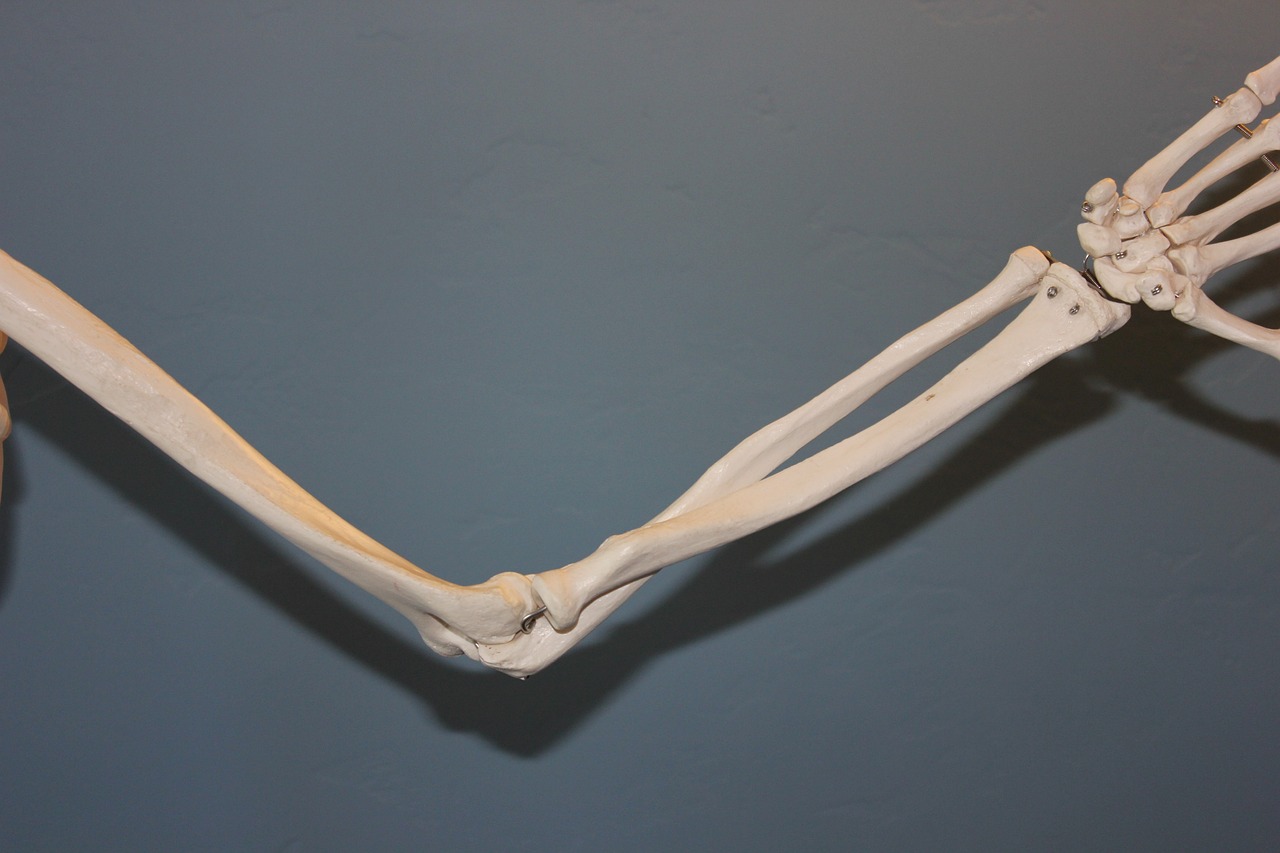
Neuroscience and Dualism
As we venture deeper into the realm of neuroscience, the age-old debate between dualism and physicalism becomes increasingly complex. Neuroscience, the scientific study of the nervous system, has made remarkable strides in understanding how the brain functions. This progress raises significant questions about the validity of Descartes's dualistic view, which posits that the mind and body are separate entities. With advanced imaging technologies like fMRI and PET scans, scientists can now observe the brain in action, providing insights into how thoughts, emotions, and consciousness arise from physical processes.
One of the most compelling arguments against dualism comes from the findings in neuroscience that suggest a strong correlation between brain activity and mental states. For instance, when we experience joy, anxiety, or any other emotion, specific areas of the brain light up. This correlation raises a provocative question: if mental states are merely byproducts of brain activity, can we truly separate the mind from the body? Critics of dualism argue that such evidence supports a more integrated view of the mind-body relationship, often referred to as monism, which posits that everything is fundamentally physical.
However, the implications of neuroscience on dualism are not entirely one-sided. Some dualists argue that while neuroscience can explain the mechanics of brain function, it does not account for the subjective experience of consciousness. This notion is often encapsulated in the term qualia, which refers to the individual instances of subjective, conscious experience. For example, consider the difference between seeing the color red and merely knowing it exists. Neuroscience can describe the processes that occur in the brain when we perceive color, but it struggles to explain why that experience feels unique and personal. This gap leaves room for dualist perspectives, suggesting that there is more to the mind than just physical processes.
Furthermore, some researchers are exploring the idea of emergent properties, where complex systems exhibit behaviors that are not present in their individual components. In this context, consciousness could be viewed as an emergent property of the brain's complex neural networks. This perspective attempts to bridge the gap between dualism and physicalism, suggesting that while the mind may arise from physical processes, it still possesses unique characteristics that warrant separate consideration.
In summary, the relationship between neuroscience and dualism is a dynamic and evolving conversation. As our understanding of the brain advances, we find ourselves at a crossroads, where the lines between mind and body blur. While neuroscience provides compelling evidence that challenges traditional dualist views, it also opens the door for new interpretations that recognize the complexity of consciousness. Ultimately, the ongoing dialogue between these fields will likely shape our understanding of what it means to be human, and how we perceive our own existence.
- What is mind-body dualism? Mind-body dualism is the philosophical concept that the mind and body are fundamentally distinct entities, each with its own properties and functions.
- How does neuroscience challenge dualism? Neuroscience challenges dualism by providing evidence that mental states are closely linked to brain activity, suggesting that consciousness may be a product of physical processes.
- What are qualia? Qualia are the subjective experiences of perception, such as the way we experience colors or emotions, which are difficult to explain through physical processes alone.
- Can dualism and neuroscience coexist? Some philosophers argue that dualism and neuroscience can coexist by proposing that while the mind arises from the brain, it still possesses unique characteristics that require separate consideration.
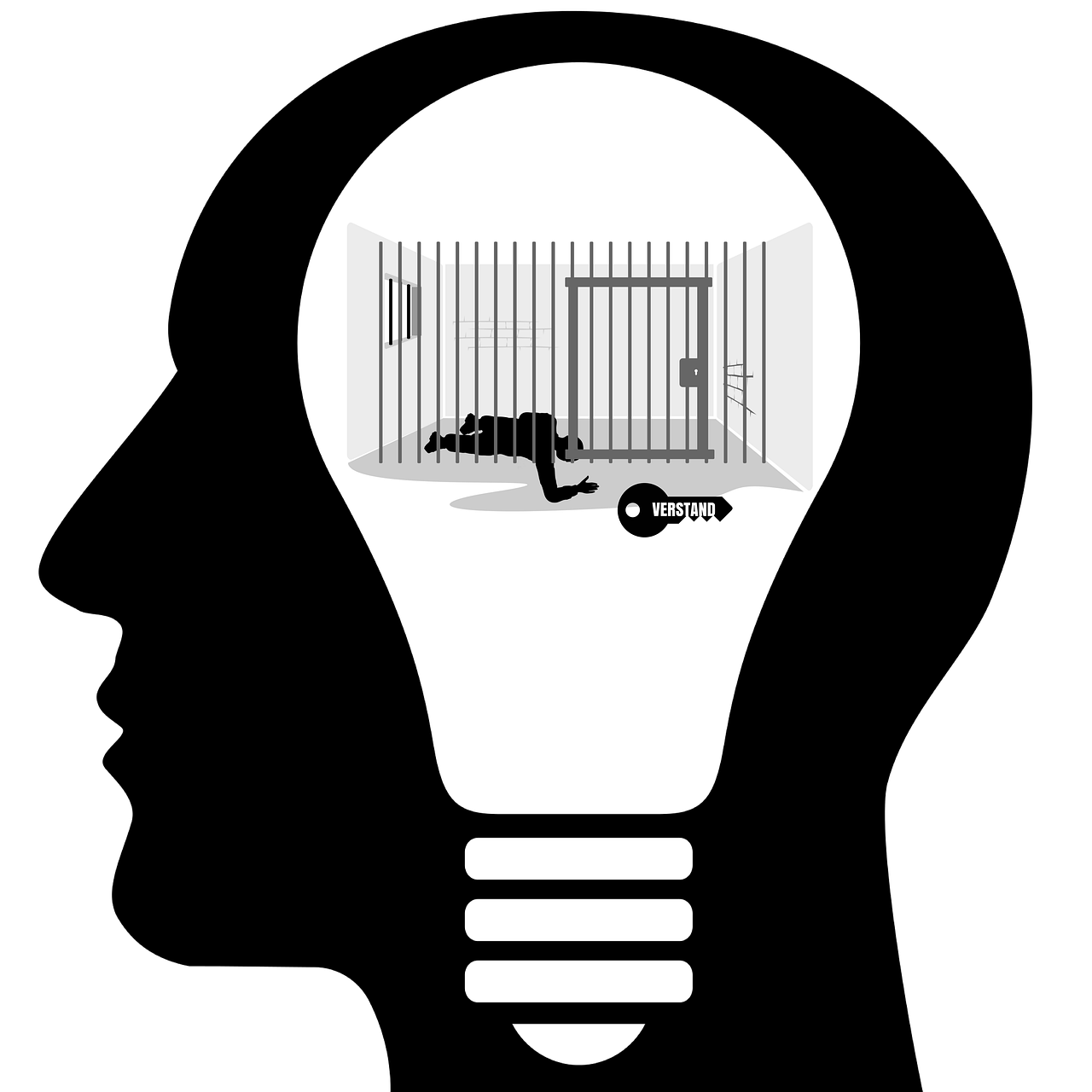
Contemporary Dualist Perspectives
In the ever-evolving landscape of philosophy, continue to spark intriguing discussions and debates. While René Descartes laid the groundwork for dualism centuries ago, modern philosophers have taken his ideas and adapted them to align with contemporary understandings of consciousness and the mind-body relationship. This adaptation is not merely a rehash of old arguments; it reflects a dynamic interplay between traditional philosophical thought and cutting-edge scientific discoveries.
Many modern dualists argue that the mind cannot be fully explained by physical processes alone. They maintain that mental states possess unique qualities, such as intentionality and subjectivity, which cannot be reduced to mere brain activity. This viewpoint often leads to the assertion that consciousness is a fundamental aspect of reality, distinct from the physical world. For instance, philosopher David Chalmers has famously articulated the "hard problem of consciousness," which posits that understanding how physical processes in the brain give rise to subjective experiences remains an unsolved mystery.
Moreover, contemporary dualists often engage with findings from neuroscience, seeking to bridge the gap between mental and physical phenomena. They argue that while neuroscience provides valuable insights into the workings of the brain, it does not capture the entirety of human experience. This perspective suggests that there is a qualitative difference between brain processes and conscious experience, a distinction that leads to ongoing debates about the nature of reality itself.
In addition to Chalmers, other philosophers like Thomas Nagel and John Searle have contributed significantly to the discourse on dualism. Nagel's famous essay, "What Is It Like to Be a Bat?" underscores the limitations of a purely physicalist approach to understanding consciousness. He argues that subjective experiences are inherently qualitative and cannot be fully captured by objective scientific methods. Similarly, Searle's critique of dualism focuses on the relationship between brain states and consciousness, advocating for a biological naturalism that seeks to explain consciousness without entirely dismissing the subjective aspects of mental life.
Despite the critiques posed by physicalists and materialists, contemporary dualism remains vibrant and relevant. It acts as a counterbalance to reductionist approaches, challenging thinkers to consider the complex interplay between mind and body. This ongoing dialogue not only enriches philosophical inquiry but also has implications for fields such as psychology, cognitive science, and even artificial intelligence.
As we delve deeper into the 21st century, the relevance of dualism continues to provoke thought and discussion. Whether one aligns with dualist views or not, the questions raised by contemporary dualist perspectives compel us to examine our understanding of consciousness, identity, and what it means to be human. It’s an intellectual journey that shows no signs of slowing down, and the exploration of these ideas is as crucial today as it was in Descartes's time.
- What is dualism? Dualism is the philosophical position that the mind and body are fundamentally distinct entities, each with its own properties and characteristics.
- Who is René Descartes? René Descartes was a 17th-century French philosopher known for his contributions to philosophy and mathematics, particularly for his formulation of substance dualism.
- What are the implications of dualism? Dualism raises important questions about personal identity, consciousness, and the nature of reality, influencing various fields from philosophy to neuroscience.
- How do contemporary philosophers view dualism? Many contemporary philosophers engage with dualism by exploring its relevance in light of modern scientific discoveries, often defending it against reductionist critiques.
Frequently Asked Questions
- What is mind-body dualism?
Mind-body dualism is a philosophical concept that suggests the mind and body are two distinct entities. In this view, the mind is considered a non-physical substance, while the body is a physical entity. This separation raises intriguing questions about how these two realms interact and influence each other.
- Who introduced the idea of substance dualism?
René Descartes, a French philosopher, is credited with introducing the concept of substance dualism. He argued that the mind is a thinking substance, fundamentally different from the body, which he described as an extended substance. His famous declaration, "Cogito, ergo sum" (I think, therefore I am), underscores the significance he placed on the mind's existence.
- How does Descartes's philosophy influence our understanding of identity?
Descartes's distinction between the mind and body has profound implications for personal identity. By asserting that the mind is a separate entity from the body, he prompted further exploration into what constitutes self-awareness and consciousness. This dualistic approach invites us to consider how our mental experiences shape our identity, independent of our physical form.
- What are some critiques of Cartesian dualism?
Critics of Cartesian dualism argue that the strict separation of mind and body is problematic. They raise questions about how two distinct substances could interact, as well as the implications this has for understanding consciousness. Philosophers throughout history have presented various counterarguments, suggesting that a more integrated view of mind and body may be necessary.
- How has neuroscience impacted the discussion on dualism?
The rise of neuroscience has posed significant challenges to traditional dualist perspectives. Scientific advancements in understanding brain function and its relationship to mental processes have led some to question the validity of separating mind and body. Neuroscience suggests that many cognitive functions may be rooted in physical brain activity, complicating the dualistic framework.
- Are there modern interpretations of dualism?
Despite the critiques, some contemporary philosophers continue to defend dualist views. They argue for a nuanced understanding of dualism that accommodates findings from neuroscience while maintaining the importance of subjective experience. These modern interpretations contribute to ongoing debates about consciousness and the mind-body relationship.



